
Protecting Your Kids Online – What Is Even Possible?
Potential risks for your kids are everywhere today, with social media, virtual worlds, gaming, internet sites, inappropriate online content, and security. We know you are concerned, and that every day you are working hard to balance their screen time and your safety concerns.
And if your child has special needs, technology can be an essential tool in their communication and learning – so limiting access is not always an option. Children with ADHD, mood disorders, and other conditions that manifest with impulsivity, may have an even harder time making good choices and following the family rules online.
How can parents navigate this, especially with school starting, new friends entering the picture, and their kid’s online worlds constantly expanding? There are plenty of safety and awareness measures you can take to help mitigate the risk, even if you can’t remove it completely from their lives.
The Children’s Guild (TCG) has always been concerned about the proliferation of cell phone use and the potential impact of the Internet on children. Several years ago, TCG started reminding parents and other concerned adults to educate, discuss, and monitor phone use to help young people sort out their relationship with their devices.1
So much has changed, but even five years ago when this article was first published—an eternity in the world of technological progress—there were significant concerns about kids and the internet. With the rapid advancements in technology, we know your concerns have only grown, as the digital landscape continues to grow at an incredible pace.
Today we recognize that there’s no one-size-fits-all solution to keeping kids as safe as possible online. Over the years, we have constantly monitored the evolving digital world and adjusted our recommendations to address new habits and trends.
The U.S. Surgeon General has even issued a “youth mental health crisis” stemming from social media. Another recent article delves into the topic of phone usage and the mental health issues that are attributed to social media, and cites that “parents should be doing more to engage their child in ways that don’t involve technology so when they get home from school, they’re less incentivized to get right back on their phones.”

As technology continues to advance rapidly, here are some key considerations for monitoring your child’s behavior online:
1. START A CONVERSATION – AND KEEP IT GOING
If you haven’t already, it’s time to start the conversation about social networking, privacy, phones and tablets, computer security, and dealing with cyberbullying. Kids may push back against your reminders, cautions, and questions. But it’s still critical that you talk about it all. Discuss inappropriate conduct online. Have a conversation about people online who may have bad intentions, like bullies, predators, hackers, and scammers. And let them know how you feel about content, like pornography, violence, or hate speech.
Children with ADHD or special needs may have difficulty understanding social cues or recognizing unsafe situations online. It’s crucial to tailor conversations to their comprehension level. Break down topics into smaller, manageable discussions and use clear, concrete examples. Role-playing different online scenarios can help them better grasp the concepts and practice safe behavior.
2. BE SMART WITH SMART PHONES
There are no set rules for when kids can have cell phones. Consider their age, personality, maturity, and your family’s circumstances. Cell phones are available with limited internet access, or you can turn on web filtering. Most phones have privacy settings and child safety controls built-in. GPS can be a blessing and a curse – allowing you to know where your kids are and inadvertently broadcasting their location to others. Encourage kids to think about privacy before they share photos and videos. Set rules on when they can and should use their phone. Your child’s school may do the same. In fact, many districts in our area are looking to prohibit use during school hours.
If managing impulsivity is a challenge for your child, consider using apps that provide reminders and prompts to think before sharing personal information or making posts. Encourage them to pause and reflect before responding to messages or sharing content. Regular check-ins can help reinforce these habits.
3. PARENTAL CONTROLS
Especially if you have elementary school kids, there are digital tools to keep them safer and not exposed to harmful content online. You can elect to filter and block certain sites, words, and images. These can apply to websites, email, chat, and IMs. Software can prevent kids from sharing personal information online, in chats, or by email. Monitoring tools will alert parents to online activity without blocking access—with or without a kid’s knowledge. Take a look at Aura Parental Controls, Net Nanny, and Bark Premium, to start. There are many more options.
Tools that offer visual and auditory alerts rather than text-based warnings might be more effective for a variety of neurodivergent learners.
4. SUPERVISING USE AND LIMITING TIME
There’s software to limit your child’s time online and set the time of day they can access online. You can also do this in person, just like you would read a book together, or play games. It’s a great way to talk to kids about the Internet and share your values about using it.
Some children may struggle with time management and may need more structured time limits for online activity. Consider using a visual timer or scheduling specific periods for internet use to help them manage their time better.
5. SOFTWARE AND SITES DESIGNED FOR KIDS
There are many browsers and websites specifically designed for kids that may filter words or images that are inappropriate for them. Child-oriented search engines allow limited searches or screen search results for sites and material more suitable for kids of different ages. Here’s a list of free educational websites and apps for kids to learn at home.
Also check out websites and apps that are specifically designed for children with special needs or ADHD, such as Funbrain, Do2Learn and GoNoodle. These websites and apps provide tailored support that can help children with special needs or ADHD develop essential skills, manage their behaviors, and engage with content in a safe, structured way.
6. KEEP READING, LEARNING AND SHARING
Online safety for kids is a moving target and an ongoing concern. So, continue to learn about tips and tricks that work for your own family. Kids are innocent, curious, and want independence and you want to nurture that in them. So be involved, set rules, talk to them, and warn about dangers. There’s plenty of guidance available online from reputable sources.
NEW LEGISLATION TO PROTECT CHILDREN
Legislators are very aware of internet safety for kids. In July 2024, the U.S. Senate passed a bipartisan bill to protect kids online and make tech companies accountable for harmful content. Congress hasn’t passed a law to protect children on the internet since 1998—before Facebook and the iPhone. The bill was written by members of both sides of the Senate and pushed by parents whose children died by suicide after online bullying or were harmed by online content in other ways.
- (“Educate Your Adolescent Before Labeling Them as ‘Addicted’ to Their Cell Phone” by Frank J. Kros, MSW, JD)
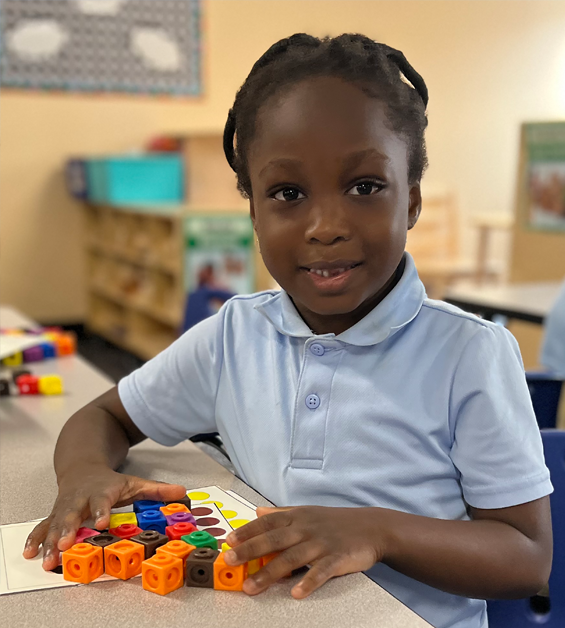
 Free preschool is an invaluable resource most find easy to support. Maryland is leading the way by instituting expanded free pre-K for many families who live in the state. Many other states have also launched free pre-K programs or are in the process of doing so. Through a variety of quality learning experiences in pre-K, kids develop skills, knowledge, and behaviors essential to being successful in school and life.
Free preschool is an invaluable resource most find easy to support. Maryland is leading the way by instituting expanded free pre-K for many families who live in the state. Many other states have also launched free pre-K programs or are in the process of doing so. Through a variety of quality learning experiences in pre-K, kids develop skills, knowledge, and behaviors essential to being successful in school and life. 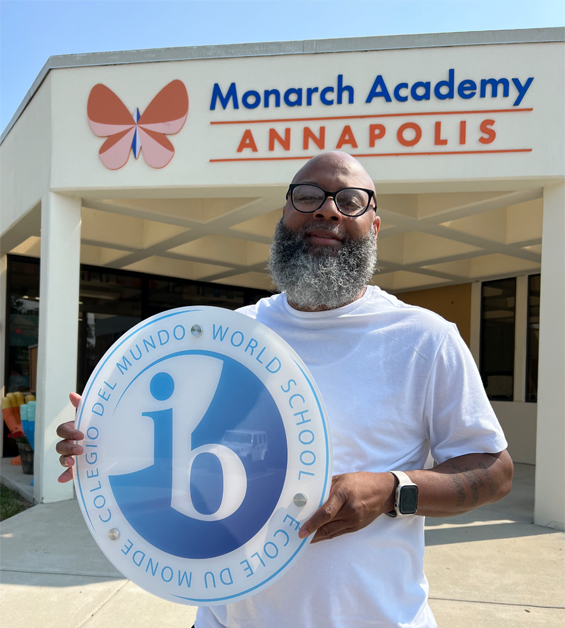
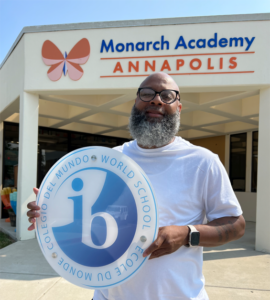 Principal Johnson is excited to share some fantastic updates about what Monarch Academy Annapolis has
Principal Johnson is excited to share some fantastic updates about what Monarch Academy Annapolis has
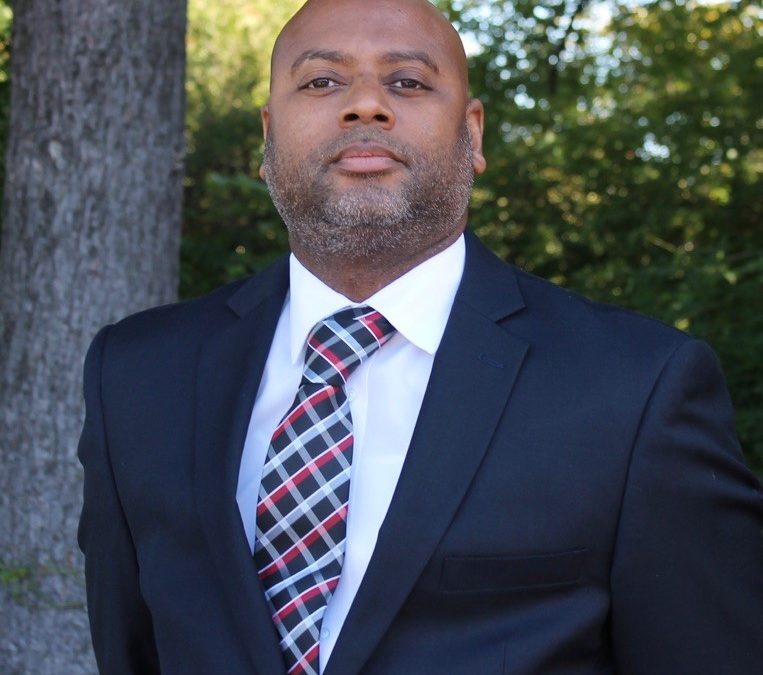
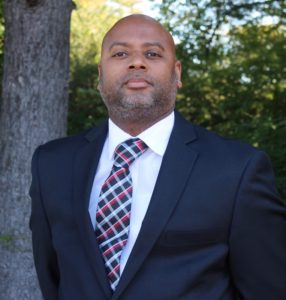 the implementation of academic curricula and data driven instructional decision making as well as co-managed the $8 million annual budget. Prior to joining Monarch Academy, Shae was Vice Principal/Academic Facilitator of Imagine Lincoln Public Charter in Prince George’s County and Vice Principal of Imagine Hope Public Charter School, part of the District of Columbia Public Schools. Shae began his career as a teacher in the Baltimore City Public School System.
the implementation of academic curricula and data driven instructional decision making as well as co-managed the $8 million annual budget. Prior to joining Monarch Academy, Shae was Vice Principal/Academic Facilitator of Imagine Lincoln Public Charter in Prince George’s County and Vice Principal of Imagine Hope Public Charter School, part of the District of Columbia Public Schools. Shae began his career as a teacher in the Baltimore City Public School System.